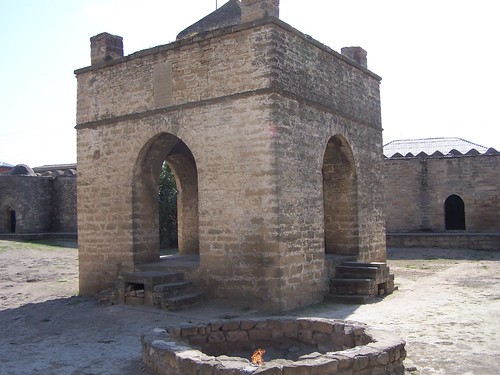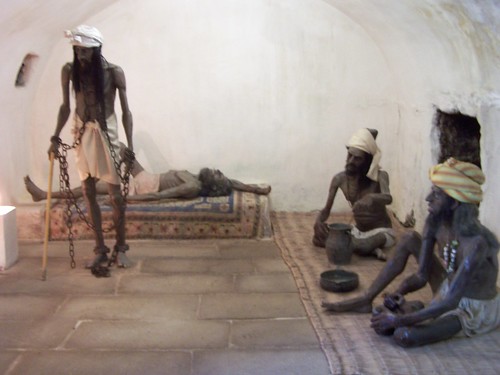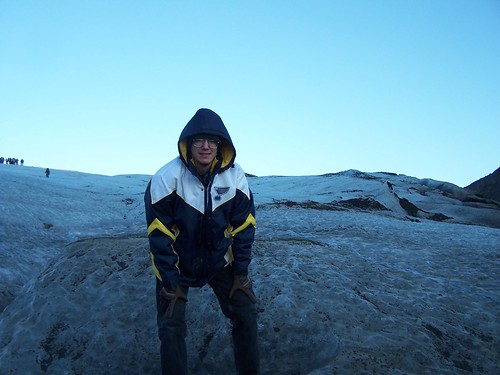HIS 105-026: World History I
204 Dauphin Humanities Center, MWF 8:00 a.m.
Dr. Brian J. Ulrich
“Ready comprehension blinks an opaque screen over your ability to learn. Be warned. Understand nothing. All comprehension is temporary.” – Frank HerbertOffice: 201 Dauphin Humanities Center, ex. 1736
Office Hours: 9-10:50 a.m. MWF, 4-4:50 p.m. Thursday
Required Texts
Voyages in World History, Vol. I, Valerie Hansen and Kenneth R. Curtis
Science and Technology in World History, James E. McClellan III and Harold Dorn
The Human Record: Sources of Global History (primary source reader)
Electronic reserves found on Blackboard
World History I is required under the “Required Skills and Competencies” category of the Shippensburg University general education program. This is not based solely on the value of understanding what people did in the past. As we will see, historians reconstruct the past on the basis of many types of evidence, evidence that must be considered carefully. This root skill of considering evidence has applications in many professional fields and in forming considered opinions as a member of society. Historians write our conclusions in the form of reasoned arguments about what we think happened. Studying these will help you to evaluate arguments in many fields, and ultimately to make your own. When historians make these arguments, they refer to their evidence with particular forms which we will study. You may never use these specific forms after this class, but the habit of following a specified professional form is something you will need to have for many fields.
As noted in the “General Education” section of the undergraduate catalog, this course is also designed to ensure that students have a global perspective as they proceed with their college education, and for that matter the rest of their lives. This will help you not only make informed decisions about the world, but may come in handy in your careers and personal lives when you least expect it. To take just one example, a friend who works in a hospital in Minnesota found herself wishing she knew a lot more about the culture of Somalia when a number of Somali refugees were settled in her area and started coming in for treatment. World history is an excellent field in which to begin developing what higher education specialists call “global competence,” as not only do we learn about different cultures, but we’ll see how they came to be the way they are, which in my experience, makes people more respectful and understanding of the differences.
I anticipate that during the semester, we will develop these key themes:
1.)
Empire – Before modern times, the most common ideal for political organization was the empire. This involved more than just conquering territory, which is what we often think of. Empires also unified large areas with a common culture, and claimed to represent a universal ideal, such as a set of religious beliefs. In addition to being a key aspect of understanding the past, understanding the various forms of empires can lead to interesting discussions about the world today. After all, the United States claims to represent ideals of democracy and capitalism, in the name of which it frequently intervenes in other countries, and people throughout the world adopt aspects of American culture. Does this mean the United States is something like a new empire?
2.)
Religions – Religions are, always have been, and perhaps always will be crucial to individuals and an important part of the societies in which they live. Almost all world religions began before 1500, and even though they continue to change and develop, we will learn a lot of basics in this course, not only about the core beliefs of different religions, but how they are often intimately related to each other in their origins and influences.
3.)
Science, Technology, and the Environment – Today we often hear about how technology is changing the world. As we will see, that isn’t new. During the semester we will explore attitudes people have had towards science and technology in different times and places, how scientific discoveries have both spread and changed ideas in other areas, and how the environment has affected human societies just as we continue to affect it.
4.)
Contact Across Cultures – Your main textbook has this as one of its major themes, and we will also explore it, as hinted at above. Given all the cultural mixing that has occurred across history, what do we really mean today when we think of the world in terms of an “us” and a bunch of different “thems?”
With these themes as our focus, assignments will ensure you develop a foundational understanding of world history to 1500, an ability to write clearly and think critically about world history to 1500, and an ability to analyze historical events and trends effectively. There will be three exams during the course of the semester, each divided into an in-class ID and an essay portion. The final exam will have a cumulative component. There will also be two papers, as noted on the “Schedule of Readings and Major Assignments” below. Attendance and participation are mandatory. Students are allowed to miss three classes. After that, your total participation grade will be lowered by 5% for each additional absence. Late papers will be accepted, but with a penalty usually amounting to one full letter grade. Late take-home exams are acceptable only under extraordinary circumstances. Laptops are permitted in class, but if I notice you doing something not related to the course, that will hurt your participation grade, as well.
In addition, I will often specify certain things you should look for in the reading for the next class, with the request that you either jot down notes or write a short paragraph on those things. This will occasionally be collected, and there will be no warning when it does. The purpose of this is both to make sure that everyone is doing the reading, and that people are understanding what they read and how it relates to the major concepts of the course. I will also probably give the occasional reading quiz. In the past, students have found my reading quizzes comically easy.
Syllabus Changes:
Almost every time I teach a course for the first time, I find I want to make changes to the syllabus. These are usually substitutions of different readings, and will not result in increased work or changes in the dates of exams and major assignments. In addition, in case of possible disruption of normal course activities due to H1N1 flu, the syllabus may be modified. If so, you will be provided a dated addendum that will supersede the earlier syllabus. It is your responsibility as a student to be familiar with any such addendum to the syllabus, issued for whatever reason.
Plagiarism:
Plagiarism, simply put, is intellectual theft. If you use words or ideas from someone else in an academic or professional setting, and do not give them proper credit, you have stolen from them. This is true even if the work has been posted in a public forum, such as a web site. It includes:
1.) Outright plagiarism – direct copying of a source, passing off the author’s words and ideas as one’s own without crediting the source
2.) Mosaic plagiarism – lifting words or phrases from the original source, again without crediting that source
3.) Echo plagiarism – no words are stolen, but ideas are lifted, again without crediting the source
Because of all this, plagiarism and other forms of academic dishonesty (cheating) will not be tolerated and handled according to Shippensburg procedures. Specific guidelines for expected citation policies will be announced with each assignment. The easiest way to avoid plagiarizing is always to cite as much as possible. Citing too much is almost impossible to do. Citing too little could lead to failing an assignment, the course as a whole, or even expulsion from the university. In order to prevent plagiarism, I ask that all assignments be submitted via turnitin.com.
Frankly, you should want to cite things even if it weren’t for the consequences of plagiarism. The flip side of plagiarism is generosity, acknowledging the debt you have to the work of others. Even when professional historians have an idea of their own, they will often include a footnote mentioning that they got the idea after talking to a colleague, or even from discussion in a class they were teaching. Sometimes when they cite a book or article, they will mention that it was recommended to them by a friend, whom they name. You may not know the people who created the sources you will cite here at Shippensburg, but acknowledging things others have done to help you is a good habit to get into for life, and proper citation is a good start.
(Note: I am indebted to Professor Betty Dessants for her description of the types of plagiarism.)
Grading:
Quizzes and Reading Thoughts: 10%
Participation: 10%
First Paper: 10%
Second Paper: 10%
First Exam: 15%
Second Exam: 20%
Final Exam: 25%
Useful terms:
Primary sources – The original materials historians use to reconstruct the past
Secondary sources – The accounts modern historians write based on primary sources
Historiography – The study of secondary sources
Disability Accomodation:
If you feel you may need an accommodation based on the impact of a disability, you should contact me privately to discuss your specific needs at least 72 hours prior to the activity which requires the accommodation. If you have not already done so, you must contact the Office of Disability Services. This office is responsible for determining reasonable and appropriate accommodations for students with disabilities on a case-by-case basis, and more generally, for ensuring that members of the community with disabilities have access to Shippensburg’s programs and services. They also assist students in identifying and managing the factors that may interfere with learning and in developing strategies to enhance learning. I cannot approve an accommodation without you registering.
Schedule of Readings and Major Assignments(Readings with a full citation are found on Blackboard)
August 31 – Course Intro
Part I – Ancient OriginsSeptember 2 – Marshall G.S. Hodgson, “In the Center of the Map,”
Rethinking World History: Essays on Europe, Islam, and World History, ed. Edmund Burke III, (Cambridge: Cambridge University Press, 1993), pp. 29-34; Hansen and Curtis, pp. 10-11, 14-15, 20; McClellan and Dorn, pp. 5-16 (views of history, Stone Age)
September 4 – Hansen and Curtis, pp. 21-5; McClellan and Dorn, pp. 17-30 (introduce importance of worldview)
September 7 – LABOR DAY
September 9 – McClellan and Dorn, pp. 31-54 (importance of visual culture, public works)
September 11 – Hansen and Curtis, pp. 28-51, 63-5; Reader, pp. 32-9 (concepts of political organization)
September 14 - Benjamin R. Foster, “Transmission of Knowledge,”
A Companion to the Ancient Near East, ed. Daniel C. Snell, (Malden, MA: Blackwell, 2005), pp. 245-52; Hansen and Curtis, pp. 54-5. (concepts of knowledge, authority, education)
September 16 – Mary Boyce, “Selection on Cattle,”
A History of Zoroastrianism, Vol. I: The Early Period, (Leiden: Brill, 1975), pp. 209-11; Hansen and Curtis, pp. 66-71; Reader, pp. 41-6 (Indo-Europeans)
September 18- Hansen and Curtis, pp. 71-75; Reader, pp. 63-73 (Buddhism, Brahmins), and universalism)
September 21 - Lindsay Allen, “Peoples, Communication and Religion: Religions and Communities,”
The Persian Empire, (Chicago: University of Chicago Press, 2005), pp. 126-31; Hansen and Curtis, pp. 51-3, 56-7, 144-57 (Israel and Persia, universal emperor-patrons versus divinish local kings, religious interactions)
September 23 – Hansen and Curtis, pp. 76-86; Reader, pp. 151-54; McClellan and Dorn, pp. 141-9. (Mauryans as universalist agrarian empire)
September 25 – Jessica Rawson, “Western Zhou Archaeology: Late Western Zhou: The Ritual Revolution,”
The Cambridge History of Ancient China, (Cambridge: Cambridge University Press, 1999), pp. 433-40; Hansen and Curtis, pp. 91-112 (ideas from first unit in relation to China) [4 page paper due]
September 28 – Reader, pp. 27-9, 85-102 (Chinese thought)
September 30 – Exam ID Section
October 2 – Essay Exam – Ancient Origins
Part II – Eurasian Powers and Universalist ReligionsOctober 5 – Hansen and Curtis, pp. 157-69; Reader, pp. 105-111, 115-9. (Greek basics)
October 7 – McClellan and Dorn, pp. 55-78 (Greek natural philosophy)
October 9 – Hansen and Curtis, pp. 169-71, 174-92; Reader, pp. 161-2 (Rome and Persia)
October 12 – FALL BREAK
October 14 – Joseph H. Lynch, “The Jewish Context of the Jesus Movement,”
Early Christianity: A Brief History, (Oxford: Oxford University Press, 2010), pp. 13-23; N.T. Wright, Overview Selections,
Jesus and the Victory of God, (Minneapolis: Fortress Press, 1996), pp. 150-55, 160-8 (texts and contexts, monotheistic religious movements)
October 16 - Hansen and Curtis, pp. 199-204; 271-6; Reader, 228-31; Jas Elsner, “Christian Triumph: A New Religion as State Cult: Sanctity, relics, and Christianization,”
Imperial Rome and Christian Triumph, (Oxford: Oxford University Press, 1998), pp. 230-5. (cultural change)
October 19 – McClellan and Dorn, pp. 79-96 (Hellenistic and Roman learning)
October 21 – Hansen and Curtis, pp. 241-8; Reader, pp. 234-42 (Islam)
October 23 – Hansen and Curtis, pp. 248-67; Reader, pp. 246-53; (Islamic empire and medieval monotheistic traditionalism)
October 26 – McClellan and Dorn, pp. 99-115; Reader, pp. 315-8 (Islamic science and technology, Turks)
October 28 – Hansen and Curtis, pp. 208-22; McClellan and Dorn, pp. 149-54; Reader, pp. 174-81 (South Asia, Mahayana Buddhism)
October 30 – Hansen and Curtis, pp. 222-37 (East Asia) [4 page paper on religions due]
November 2 – McClellan and Dorn, pp. 117-40 (Chinese science)
November 4 – K.N. Chaudhuri, “The rise of Islam and the pattern of pre-emporia trade in early Asia,”
Trade and Civilization in the Indian Ocean, (Cambridge: Cambridge University Press, 1985), pp. 34-53; Hansen and Curtis, pp. 319-25 (al-Hind)
November 6 – Hansen and Curtis, pp. 300-15 (Africa)
November 9 – Hansen and Curtis, pp. 328-55; Reader, pp. 305-14 (Far East)
November 11 – Exam ID Section
November 13 – Essay Exam – Eurasian Powers and Universalist Religions
Part III – New Powers, New ConnectionsNovember 16 - Hansen and Curtis, pp. 386-417 (Mongols)
November 18 – Hansen and Curtis, pp. 276-98 (Europe from 400-1000)
November 20 - Hansen and Curtis, pp. 356-74 (High Medieval European Civilization)
November 23 – NO CLASS – MIDDLE EAST STUDIES ASSOCIATION (I will schedule a make up project for this missed period, but at another time in the semester, as you will all be very busy this week.)
November 25 – THANKSGIVING BREAK
November 27 – THANKSGIVING BREAK
November 30 – Hansen and Curtis, pp. 114-33, 418-31 (Americas before 1500)
December 2 – McClellan and Dorn, pp. 155-75 (American science and technology)
December 4 – Hansen and Curtis, pp. 374-84; Daniel J. Boorstin, “The Enterprise of the Indies,”
The Discoverers, (New York: Vintage Books, 1983), pp. 224-31. (Expansion of Europe)
December 7 – Hansen and Curtis, pp. 431-49; Reader, pp. 465-72 (Conquest of Americas)
December 9 – Hansen and Curtis, pp. 450-78 (16th and 17th centuries)
December 11 – Exam Review
Labels: History





